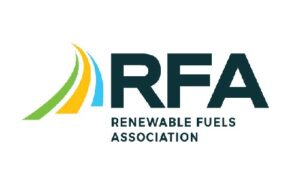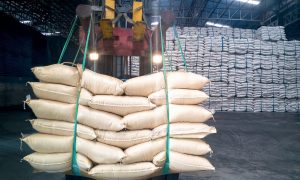USA : FS Paves The Way For BECCS And Carbon-Negative Ethanol Production

FS, a Brazilian ethanol and animal nutrition company, has confirmed the geological feasibility of capturing and storing CO2 underground from its ethanol production process. This positions FS as a pioneer in BECCS (Bioenergy with Carbon Capture and Storage) technology outside the U.S., aiming to store 423,000 tons of CO2 annually from its Lucas do Rio Verde facility. FS plans to expand the project, potentially capturing 1.8 million tons of CO2 per year, contributing to carbon-negative ethanol production and global energy transition efforts.
Brazilian ethanol and animal nutrition giant FS has achieved a significant breakthrough in its BECCS project. The company has confirmed the geological feasibility of injecting carbon dioxide (CO2) captured from its ethanol production process into the subsurface.
This milestone positions FS to become the world’s first ethanol producer with a negative carbon footprint and the pioneer in BECCS technology outside the United States.
The successful technical studies conducted by FS demonstrate that the geological conditions in the region are suitable for CO2 storage. https://player.rss.com/carbonsations/1520884?theme=light
By implementing BECCS, FS aims to prevent the release of approximately 423,000 tons of CO2 into the atmosphere annually from its Lucas do Rio Verde facility.
The company envisions expanding this technology to other industrial units, potentially capturing and storing over 1.8 million tons of CO2 per year.
BECCS offers a promising solution to mitigate climate change by capturing and permanently storing carbon dioxide. FS’s project involves drilling a stratigraphic well to examine rock formations at a depth of over 2,000 meters.
The Diamantino rock formation was identified as having the ideal porosity and permeability to safely store CO2 at a depth of more than 800 meters.
While only two ethanol producers worldwide currently employ BECCS technology, both located in the United States, FS’s project distinguishes itself by utilizing second-crop corn and renewable biomass as raw materials. This approach ensures that the produced ethanol is truly carbon-negative.
FS CEO, Rafael Abud, emphasized the importance of this milestone in attracting investments in BECCS technology and added: “Now what we need is the advancement of regulation and carbon trading markets.”
“In addition to utilization in automobiles, ethanol produced with the technology can be used to produce sustainable aviation fuel (SAF) and marine fuel, making Brazilian ethanol increasingly one of the largest contributors to the world’s energy transition.”
The carbon-negative ethanol produced through BECCS can be used not only in automobiles but also in sustainable aviation fuel (SAF) and marine fuel, further contributing to the global energy transition.
Pending the approval of the necessary regulations, FS plans to invest an additional R$350 million to implement equipment for CO2 capture, dehydration, compression, and injection. This project is expected to create around 230 direct jobs and is supported by FINEP, a public agency promoting innovation and sustainable development in Brazil.
Source Link : https://carbonherald.com/fs-paves-the-way-for-beccs-and-carbon-negative-ethanol-production/
















